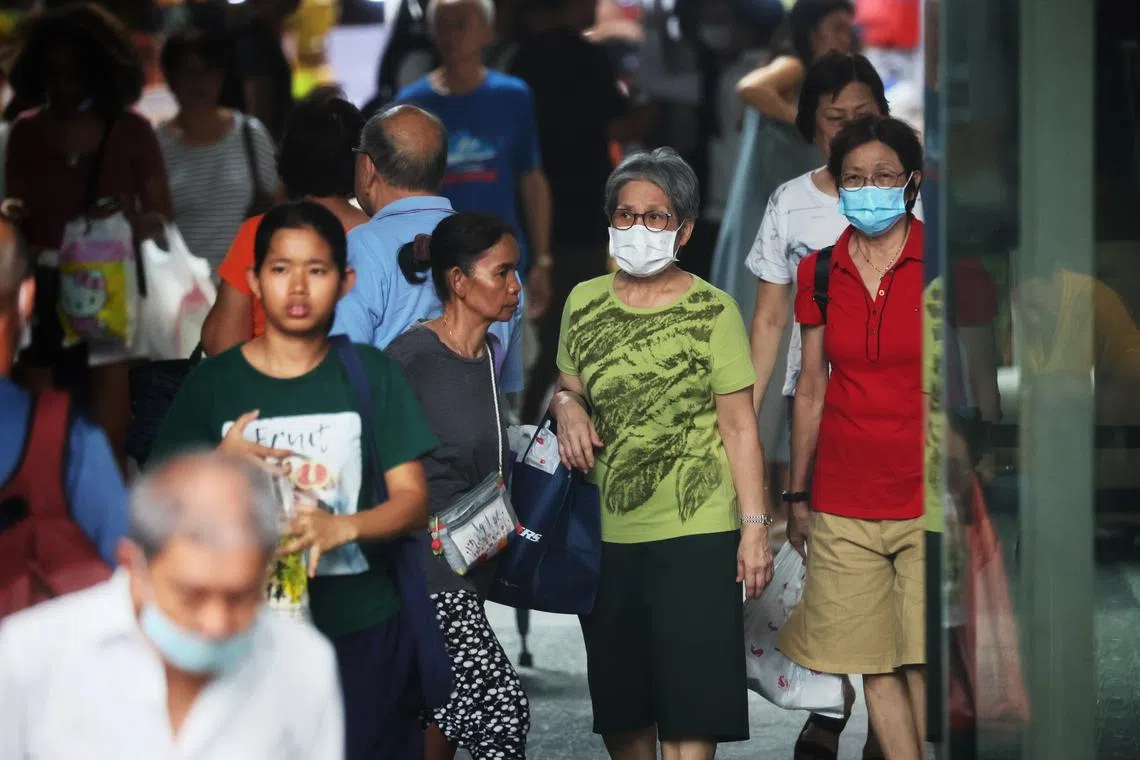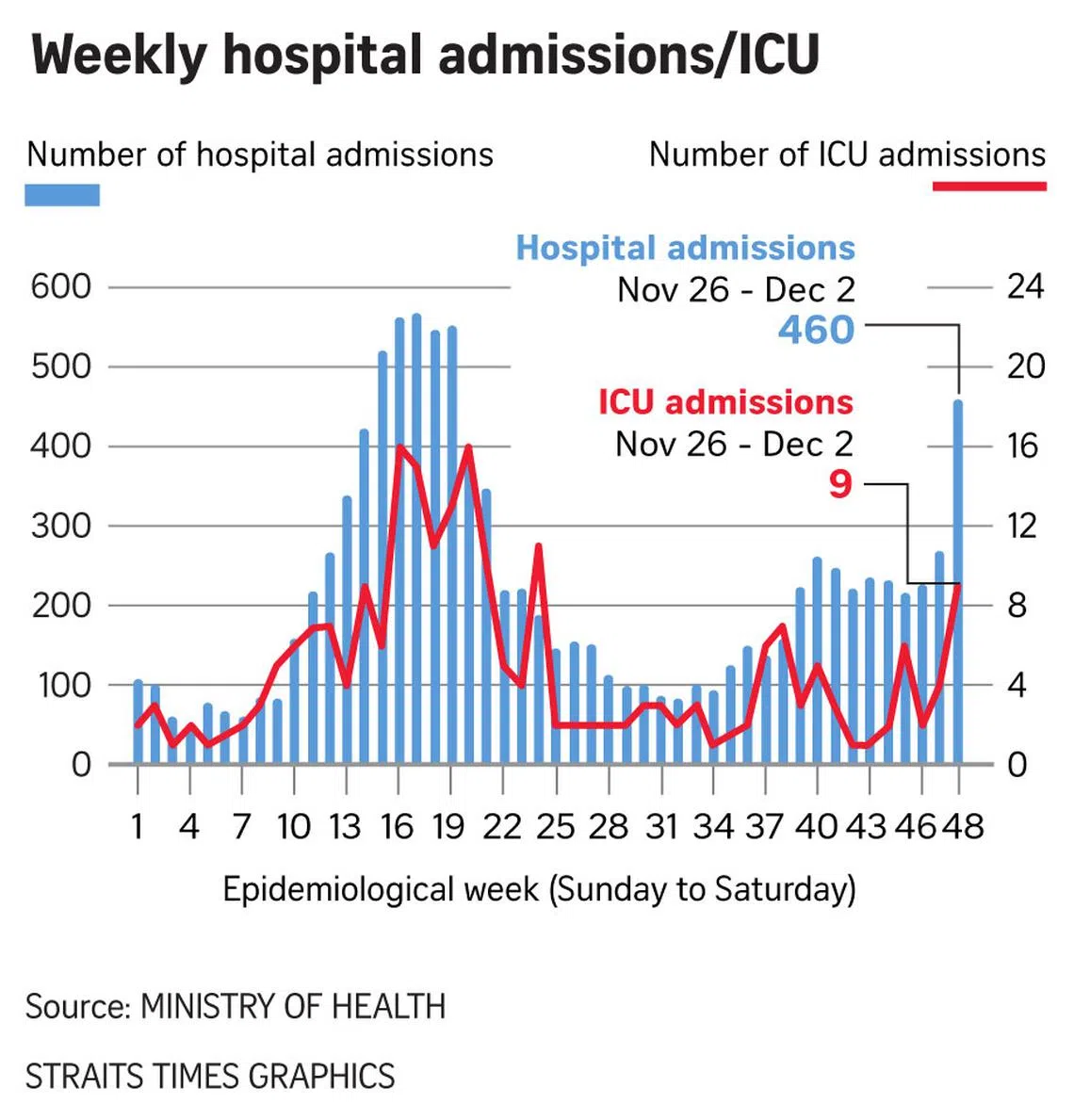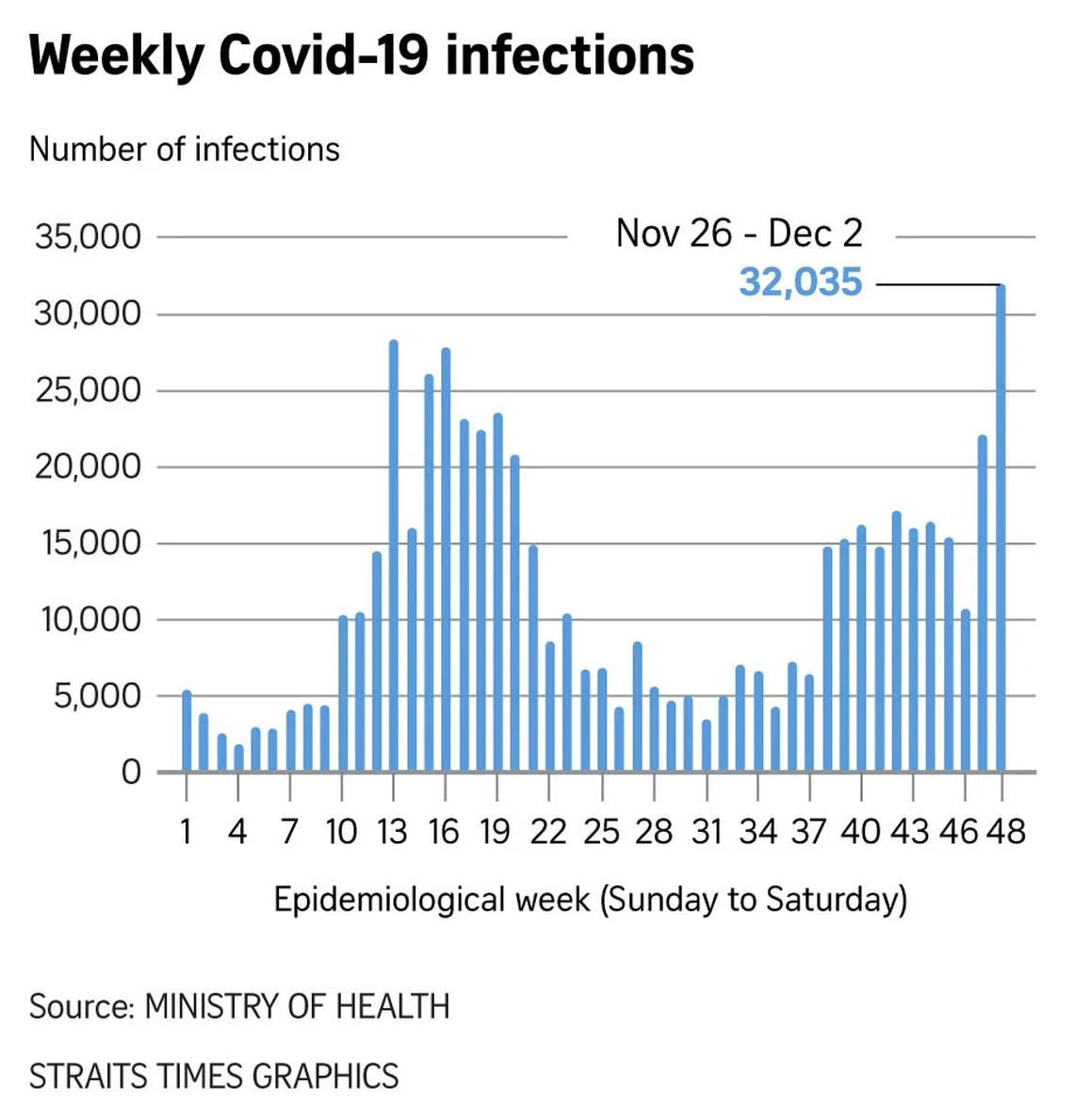More hospitalisations as Singapore’s Covid-19 cases hit record high for 2023
Sign up now: Get ST's newsletters delivered to your inbox

The Health Ministry has reassured people that the numbers are not as high as during the pandemic.
ST PHOTO: KELVIN CHNG
Follow topic:
SINGAPORE – Covid-19 infections and hospitalisations are increasing, putting a strain on hospitals here.
The Ministry of Health (MOH), which raised the alert, has also reassured people that the numbers are not as high as during the pandemic, and that the circulating variants are not known to cause more severe illness.
In the week ended Dec 2, 32,035 people were diagnosed with Covid-19 – the highest number of infections recorded this year. The previous high was 28,410 infections a week in March.
The latest number is almost 10,000 more than the 22,094 diagnosed the previous week
The number of people being hospitalised and needing intensive care treatment has also gone up.
An MOH statement on Dec 8 said the average daily Covid-19 hospitalisations rose to 225 from 136 the week before, and the average daily intensive care unit (ICU) cases increased to four cases compared with one case in the previous week.
It said: “This has added workload to our hospitals, which are already busy.”
Nine people severely ill with Covid-19 were admitted to a hospital ICU in the week of Nov 26 to Dec 2, up from four the previous week. But as hospitalisation and need for intensive care treatment usually lag behind infections, the numbers could go up in the coming weeks.

That was what happened in the Covid-19 wave in March and April 2023, with ICU weekly admission for this infection hitting a high of 16 about three weeks after infections peaked.
That wave resulted in 54 Covid-19 deaths in April and 53 in May. In other months, deaths ranged from five to 28 each month. Most deaths involved people 60 years and older, although there was one child who died in October.
The ministry said the rise in cases “could be due to a number of factors, including waning population immunity and increased travel and community interactions during the year-end travel and festive season”.
It urged people to keep up to date with their Covid-19 vaccinations
It also asked people “to seek medical treatment at a hospital’s emergency department only for serious or life-threatening emergencies”.
This is to “preserve our hospital capacity for patients who truly need acute hospital care and allow those with severe illness to receive timely treatment”.

In a separate statement on Dec 8, the ministry refuted allegations made by Dr Gabriel Oon “which suggested that the development and administration of mRNA vaccines have led to new virus mutants or variants”.
This is factually incorrect, it said, adding that there is no evidence that the mRNA vaccines contributed to the virus mutating.
It added: “Contrary to what Dr Oon said, the mRNA vaccines also do not contain the live Sars-CoV-2 virus. The mRNA vaccine comprises RNA material, which is translated to a viral protein, that triggers the immune response in humans. It does not rely on inactivation of the Sars-CoV-2 virus.”
This is not the first time Dr Oon has spoken out against mRNA vaccines.
He also did so in 2021, calling them “useless now and obsolete in the presence of mutations”, urging people to get the Sinovac vaccine instead.
The MOH also said that “the primary reason why Singapore recorded one of the lowest excess death rates in the world during the pandemic” was that the great majority of people here took the vaccines.
It added that vaccines do not give 100 per cent protection, which is why a small proportion of those vaccinated also died.


